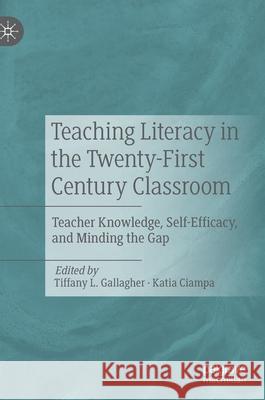Teaching Literacy in the Twenty-First Century Classroom: Teacher Knowledge, Self-Efficacy, and Minding the Gap » książka
topmenu
Teaching Literacy in the Twenty-First Century Classroom: Teacher Knowledge, Self-Efficacy, and Minding the Gap
ISBN-13: 9783030478209 / Angielski / Twarda / 2020 / 293 str.
Teaching Literacy in the Twenty-First Century Classroom: Teacher Knowledge, Self-Efficacy, and Minding the Gap
ISBN-13: 9783030478209 / Angielski / Twarda / 2020 / 293 str.
cena 402,53
(netto: 383,36 VAT: 5%)
Najniższa cena z 30 dni: 385,52
(netto: 383,36 VAT: 5%)
Najniższa cena z 30 dni: 385,52
Termin realizacji zamówienia:
ok. 16-18 dni roboczych.
ok. 16-18 dni roboczych.
Darmowa dostawa!
Kategorie:
Kategorie BISAC:
Wydawca:
Palgrave MacMillan
Język:
Angielski
ISBN-13:
9783030478209
Rok wydania:
2020
Wydanie:
2020
Ilość stron:
293
Waga:
0.64 kg
Wymiary:
21.01 x 14.81 x 2.54
Oprawa:
Twarda
Wolumenów:
01
Dodatkowe informacje:
Wydanie ilustrowane











